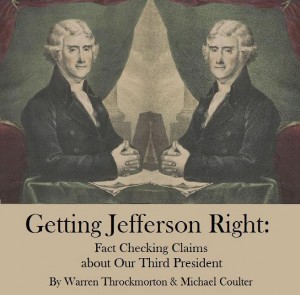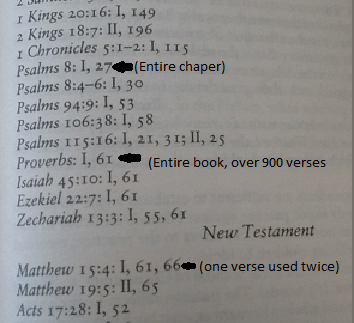John Fea is rightfully perplexed over being criticized by self-styled historian David Barton. In a recent speech, Barton went after the wrong academic.
On the Wallbuilders Live radio show, host Rick Green played a segment of a speech Barton gave at something called Dallas Pro-Family Legislators Conference. In the speech, Barton falsely identified John Fea as the academic who critiqued Barton’s claim that John Locke cited the Bible over 1500 times in his Two Treatises of Government.
Actually, it was historian and Locke scholar Greg Forster and me.
In a post dated May 8, 2015, Forster evaluated the accuracy of the claim about Locke which Barton made in front of crowd of pastors in the Ukraine (go to the post for the video). Barton told the Ukrainian pastors:
This man is named John Locke. He was a great lawgiver in history and he was also a theologian. He wrote this particular book on civil government in 1690. This has been used by nations across the world in building their governments. We actually own many of the original works by these lawgivers from four or five centuries ago.
Now if I were to ask us as ministers to name the Bible verses we can think of that address civil government, I would imagine that we could come up with 25 or 30 verses.
In this book here less than 3 cm thick, he lists over 500 biblical references to how civil government is to operate…. No, (interrupting the interpreter) 1500, 1500. I don’t know of a Christian today who could name 1500 Bible verses on how civil government’s to operate.
We may be Christians but we don’t think biblically about government.
After watching the video, Forster said:
Barton does not tell us the title of the book he holds up, but from his description it is impossible that it could be any book other than the Two Treatises of Government. However, his characterization of it is outrageous. Claiming that the Two Treatises “lists over 1,500 biblical references on how civil government is to operate” is not much more dishonest than claiming that the Bill of Rights protects 1,500 rights.
In his edition of the Two Treatises, editor Mark Goldie of Cambridge University lists only 121 Bible verses cited in the entire Two Treatises. And that’s including all the places where Locke didn’t cite the verse explicitly and Goldie “interpolated” the citation. In addition to those 121 Bible verses referenced, Goldie lists six places where Locke cited an entire chapter of the Bible, and one place where he cited an entire book (Proverbs). That’s it. But anyone who has read the Two Treatises will know Barton’s claim is false without having had to count.
Moreover, a large number – possibly even the majority – of those 121 citations are not to passages “on how civil government is to operate.” The Bible references in the Two Treatises are heavily concentrated in the First Treatise. The overwhelming majority of the First Treatise, in turn, is devoted to an extended analysis of small number of selected verses from the first two chapters of Genesis, especially Genesis 1:28-30. That’s a lot of analysis devoted to understanding the biblical text, but it’s not a large number of verses cited. The remainder of the First Treatise, where other biblical verses are cited more frequently, looks to the Bible not primarily for instruction on civil government but almost entirely on the power of parents over their children, especially the inheritance of property from parents to children. Locke is interested in these verses because he wants to use them to refute Robert Filmer’s claim that today’s kings inherit their power from Adam, but these are clearly not “biblical references on how civil government is to operate.” They are biblical references on how families are to operate. In fact, the point that descriptions of the how the family should work are not descriptions of how civil government should work was Locke’s main point!
After all this, it seems trivial to point out that Locke did not, in fact, “write” the Two Treatises in 1690; he published it in that year, but wrote it much earlier.
Barton makes this claim in the new edition of The Jefferson Lies and on his website. He said his staff counted up the citations.
In September 2015, I challenged Barton to produce evidence for his claim and demonstrated that for one to claim Locke cited over 1500 Bible verses, one would have to count every verse in the book of Proverbs because Locke mentioned that book once.
So Dr. Fea, you’re off the hook. Next time Barton wants to inaccurately beat up on an academic, he can take it up with Forster and me.

